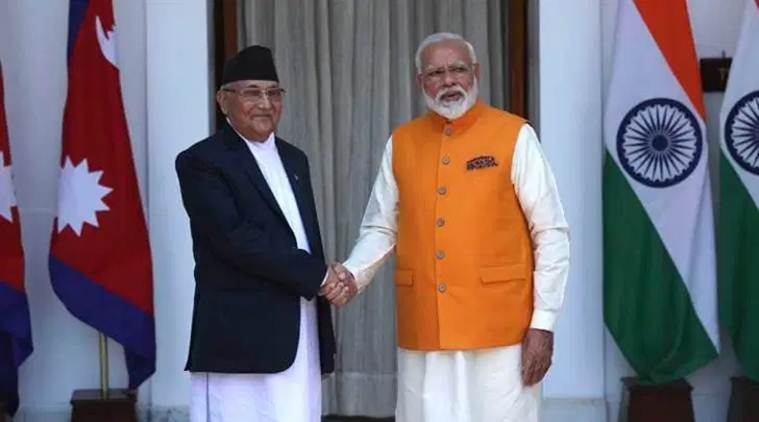A day after a diplomatic face-off between India and Nepal over the construction and inauguration of a link road, the Nepal government on Sunday said it believed that bilateral talks between Nepal and India were the most preferred option to sort out what it called the encroachment of around 400 sq km area east of Kali river in the tri-junction of Nepal, Tibet and India. These comments came as frayed tempers and anti-India sentiment dominated Nepal’s Parliament.

The Indian Express has learnt that the foreign secretary-level talks were expected to take place in March, but the Covid situation had put a spanner in the plans.
Story continues below this ad
Nepal’s Foreign Minister Pradeep Gyawali said in the foreign relations committee of Parliament and the House of Representatives that India building the link road to Mansarovar via Lipulekh including a 19-km stretch in Nepali territory “without even responding to our diplomatic note” was objectionable.
Responding to members of various parties, Gyawali said Nepal believed that the solution to the dispute was possible through bilateral talks instead of internationalising the issue as some suggested.
He said Nepal had all the evidences —maps during the 1816 Sugauli treaty and three complementing treaties that followed — fixing that Limpiadhura, Kalapani and Lipulekh were shown east of Kali river and part of Nepal as per the arrangement following Nepal’s war with the British and having to cede a large chunk of territory that forms the present Uttarakhand.
The minister said it was evident from the variation in subsequent maps published by India that there was manipulation including Nepali area in India.
Story continues below this ad
Home Minister Ram Bahadur Badal said Nepal should also be talking to China as India and China had signed an agreement in May 2015 to develop Lipulekh as a commercial passage without consulting Nepal.
Mahanth Thakur, one of the seniormost leaders of the House representing the Tarai-centred Rastriya Janata Party, said Nepal as a state must ensure its presence in the area under dispute.
Gyawali’s comments came a day after Nepal expressed “regret” over the construction and inauguration of the link road by India, connecting through territory that Nepal claims belong to it, to which New Delhi said that the road in Uttarakhand lies “completely within the territory of India”.
Nepal’s Foreign Ministry said on Saturday, “The unilateral act runs against the understanding reached between the two countries including at the Prime Ministers’ level that a solution to the boundary issue would be sought through negotiation.”
Story continues below this ad
It added, “The government of Nepal remains committed to seek diplomatic solution to the boundary issues on the basis of historical treaty, documents, facts and maps in keeping with the spirit of close and friendly ties between the two countries.”
On Saturday, Ministry of External Affairs spokesperson Anurag Srivastava said, “The recently inaugurated road section in Pithoragarh district in the State of Uttarakhand lies completely within the territory of India. The road follows the pre-existing route used by the pilgrims of the Kailash Mansarovar Yatra.”
He had said that India and Nepal have an established mechanism to deal with all boundary matters. “The boundary delineation exercise with Nepal is ongoing. India is committed to resolving outstanding boundary issues through diplomatic dialogue and in the spirit of our close and friendly bilateral relations with Nepal,” Srivastava said.
Meanwhile, China Global Television Network withdrew a picture it had published on May 2 showing a picture of Mt Everest and stating that it fell in Tibet. The picture had sparked anti-China comments on social media in Nepal for the factually wrong presentation.

 Prime Minister Narendra Modi with his Nepalese counterpart KP Sharma Oli (AP Photo/File)
Prime Minister Narendra Modi with his Nepalese counterpart KP Sharma Oli (AP Photo/File)






